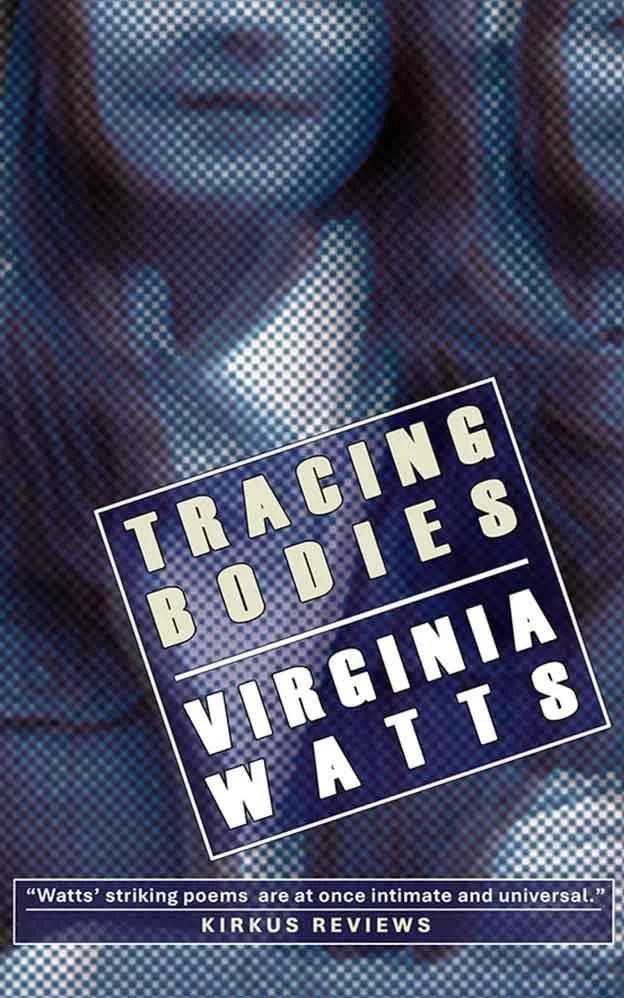Interview with Writer/Poet Virginia Watts
Q: What books are on your night stand?
A: I am a person who reads one book at a time, so I have Fredrik Backman’s new book “My Friends” on my nightstand. It’s brilliant. I am trying not to read it too fast. I’m always so sad when a book that I fall in love with ends. Backman is also the author of “A Man Called Ove” which was made into a movie starring Tom Hanks. I liked that book too, but this one I like even better, because it’s the story of three boys who as teens go through hard times together and survive because they have each other. It’s a tale of true friendship, a bond that lasts the test of their lifetimes. Now, there is only one of the three left, but still, he carries the memory and voices of his friends with him as if they are still alive and right there beside him.
Q: What kind of reader were you as a child?
A: I have always been a reader. Some of the early books I loved were Anne of Green Gables, Gone with the Wind, The Old Man and The Sea, Jane Eyre, everything J.R.R. Tolkien wrote, The Grapes of Wrath. I also had a big Nancy Drew phase.
Q: What’s the last great book you read?
A: I loved The Once and Future Witches by Alix E. Harrow. The book is set in 1893 against the backdrop of the American suffragette movement and involves three sisters who are witches in all the ways all strong women are witches. This book is for every woman because every woman has felt powerless. The women cast spells based on fairy tales, nursery rhymes and lullabies. An amazing mix of feminist tradition, motherhood, sisterhood and modern folklore.
Q: What’s your favorite book no one else has read?
A: I think there are two books that proved to be some of my favorites that no one else has read. Reindeer Moon and the sequel The Animal Wife by anthropologist Elizabeth Marshall Thomas. These books take place twenty thousand years ago and follow early humans who must survive in Siberia. I didn’t expect to fall in love with these characters but I did. These are unique and profoundly moving tales of early humanity. I was especially taken with their spiritual rituals and how one character becomes a wolf spirit after her death who gives the reader insights into the animals who were so important for the survival of her people.
Q: Do you prefer writing poetry or fiction?
A: I love telling a story. Whether I choose prose or poetry to tell a story depends on which form will tell the story best. I like writing both prose and fiction. When I began writing more or less full time over a decade ago, I wrote a lot of nonfiction. I found that over time I wanted to write less nonfiction and more fiction. I think I had to come to believe that I could make up a story and not just remember one.
Q: Your new poetry collection is deeply personal. I remember a teacher telling us to “not go in without a ladder out”. Do you have a ladder, or even need one, and how might you advise others on writing the painful or difficult?
A: The only advice I would give is that when writing personal material in the form of memoir or nonfiction, it is best to let the work sit for some time after you have drafted it. When a writer is very much inside a narrative, you need to give yourself time and distance before editing.
Q: Something I love in this collection is it’s “sense of place”. Can you talk about what “sense of place” means to you, and how it does, or does not, inform your writing?
A: Place has always been very important to my writing. I have worried about place too because I mostly write about the places I know, the places I have lived within. These are rural places, small town places, mountain places. I didn’t worry too much about this, though, because I try not to think too much about what I write. If an idea comes to me, I see if it stays around and if so, I write about it and I don’t analyze it. I think I write about what I feel I know best, what I care about, what has mattered to me and shaped me. I always say this is what I got, and I’m okay with that. Everyday life, small moments. I have written several science fiction stories that have been well received. Of course, there, the place is not anyplace I’ve been, but they still feature people and at times, even robots, who I seem to recognize, remember, understand or value. They are characters I want readers to meet and so I write their story and create a future world for them to live in.
Q: If you could have a dinner party with three other writers, living or dead, who would you choose?
A: I would want to meet Hemingway because he’s the best short story writer of all time in my opinion and I’d just like to tell him that, and I am sure he wouldn’t care a wit which would be funny. I didn’t mention T.J. Klune but he is one of my all-time favorite writers.
About the Author:
Virginia Watts is a writer whose work appears in CRAFT, The Florida Review, Reed Magazine and more. Her published works span multiple genres, including short stories and poetry, most recently her collection Tracing Bodies. Read more about Virginia and her work on her website.



Ellis Elliott is a published author and poet. Join her Bewilderness Writing Workshops and use free writing to find yourself and your voice on the page. Order her poetry collection Break in the Field.